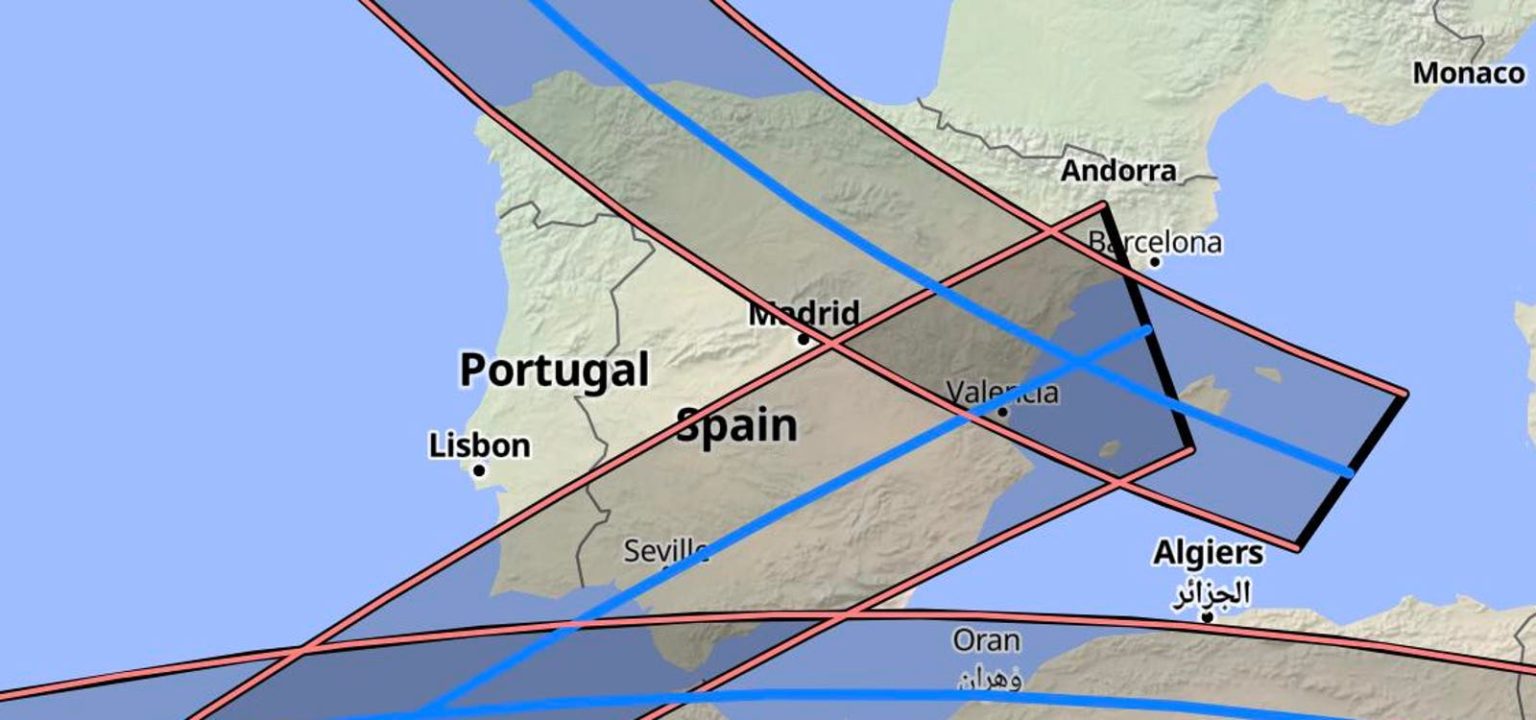Spain is set to experience three major solar eclipses over the next few years, offering a unique opportunity for eclipse enthusiasts and sky gazers to witness these rare events. The first eclipse is scheduled for August 12, 2026, in northern Spain, with the best viewing locations being Panenica, Burgos, and Valladolid. The second eclipse will occur on August 2, 2027, in southern Spain, with areas between Cadiz and Malaga offering the best views. The final eclipse, an annular solar eclipse, is set for January 26, 2028, in southern Spain’s Gulf of Cadiz.
Interestingly, Spain’s major cities like Madrid and Barcelona will miss out on viewing the eclipses, as they will not be in the path of totality. Instead, locations like Panenica, Burgos, Valladolid, Cadiz, and Malaga are recommended for optimal viewing experiences. The 2027 eclipse in southern Spain will offer a totality lasting 4 minutes and 39 seconds, providing a stunning spectacle for those in the region. Additionally, the 2028 annular solar eclipse will present a “ring of fire” effect lasting up to 7 minutes and 10 seconds in Spain’s Gulf of Cadiz.
While Spain will be showcasing these rare celestial events, other countries like Australia are also set to have multiple total solar eclipses in the coming years. Australia is scheduled to have four total solar eclipses in 2028, 2030, 2037, and 2038, providing more opportunities for eclipse chasers to witness these incredible phenomena. For those interested in exploring different parts of the world to view eclipses, alternative locations include Greenland, Iceland, Morocco, Algeria, Tunisia, Libya, Egypt, Sudan, Saudi Arabia, Yemen, Somalia, British Indian Ocean Territory, Galapagos, Ecuador, Peru, Brazil, and French Guiana.
Travelers and eclipse enthusiasts are encouraged to plan their trips to Spain strategically in order to secure optimal viewing conditions for the upcoming solar eclipses. Clear skies are crucial for observing these phenomena, so considering factors like weather patterns, local geography, and atmospheric conditions can aid in selecting the best viewing locations. With Spain set to host three major solar eclipses in the span of just a few years, the country is poised to become a hotspot for eclipse tourism and astronomy enthusiasts looking to witness these breathtaking events firsthand.













